Restarting the career of an individual can be a tough challenge yet a rewarding journey. Whether you have family commitments or took time off for personal reasons or to go with other interests, returning to the workforce needs to have a planning approach. In this blog, you will study the practical steps and resources to help you successfully figure out the courses to restart your career and tips on how to restart your career after a long break.
Knowing transferable skills: Reflect on your off time and consider what skills you may have learned through volunteer work, freelancing, or personal projects. Many skills, such as communications, organization, and problem-solving, are transferable across industries.
Reflect on Your Passions: What did you find most enjoyable to do before taking your break? Activities you enjoy the most may be a good guide toward where your career should go.
Set clear goals: Define what you want to achieve in your career. Do you want to return to your previous field or explore something new? Setting clear goals will help you stay focused during your job search.
Technical Skills: Platforms like Coursera and Udemy offer just about any number of courses, tailor-made for various skill levels. Take courses on coding, data analysis, digital marketing, and more.
Certification Programs: Research into the certification programs in areas related to project management, such as PMP; business analysis, such as CBAP; IT service management, such as ITIL.
Soft Skills Development: Communication, leadership, and teamwork-enhancing courses will also be helpful. These skills are very welcome in every industry by all employers.
Practice Questions: Practice questions about your career gap and prepare short responses that reflect what you have learned during this time. For instance, if you took time off for family reasons, explain how that experience has enhanced your organizational skills or resilience.
Prepare for Mock Interviews: Conduct mock interviews with friends or mentors who can provide genuine feedback. This practice will help you to collect your thoughts clearly during the actual interview.
Company websites and job boards: Use job boards such as Indeed or Naukri to find openings that match your skills. Also, go to the company websites directly for positions that may not be advertised elsewhere.
Returnship Programs: Check out for companies offering returnship programs specifically designed for individuals re-entering the workforce after a break. These programs often provide training and mentorship while allowing you to gain relevant experience.
Freelancing or Part-Time Work: If you’re hesitant about jumping back into a full-time role immediately, consider freelancing or part-time work in your field. This approach allows you to gain experience while easing back into the workforce.
How to Understand Your Career Break?
A career break is a gap, which is considered by many individuals, in their professional timeline; on the other hand, it is a very important period for introspection and personal growth. Many people take time out for different reasons, including raising children, taking care of family members, or even studying further. It has to be communicated that this phase is temporary and can be used constructively. Rather, focus on how you might utilize this period to further develop your skills and better equip yourself when you return.3 Tips for Assessing Your Skills and Interests
Before going back to the job market, take some time to reflect on your skills and interests. Here are some steps that may involve:Knowing transferable skills: Reflect on your off time and consider what skills you may have learned through volunteer work, freelancing, or personal projects. Many skills, such as communications, organization, and problem-solving, are transferable across industries.
Reflect on Your Passions: What did you find most enjoyable to do before taking your break? Activities you enjoy the most may be a good guide toward where your career should go.
Set clear goals: Define what you want to achieve in your career. Do you want to return to your previous field or explore something new? Setting clear goals will help you stay focused during your job search.
Best Courses to Restart Your Career
Many organizations have specific training programs for people returning from a career break. Upskilling is an integral part of getting restarted into your career after quite some time. Some of the popular courses that help reinstate your employability are discussed below.Technical Skills: Platforms like Coursera and Udemy offer just about any number of courses, tailor-made for various skill levels. Take courses on coding, data analysis, digital marketing, and more.
Certification Programs: Research into the certification programs in areas related to project management, such as PMP; business analysis, such as CBAP; IT service management, such as ITIL.
Soft Skills Development: Communication, leadership, and teamwork-enhancing courses will also be helpful. These skills are very welcome in every industry by all employers.
How to Restart a Career After a Long Break?
Restarting a career after a very long break may be a bit daunting, but with the right strategies, you will always get back moving. Here’s a simple guide on how to restart your career effectively.Understand Your Break
First, know that a career break is a quite common phenomenon that may occur due to family commitments, personal health issues, and higher education pursuits. Recognize the experiences and skills you have acquired during this period, as they might be valuable for your future positions.Assess Your Skills and Interests
Take some time to reflect on your job roles prior and what you loved most about them. Consider the skills you have learned during your breakthrough volunteer work, hobbies, or personal projects. Many of these seemingly unrelated skills, like basic communication, organization, and problem-solving, can be applicable in most job roles.Revisit Your Interests
What were you into before your break? Identifying these interests will help you narrow down the next move in your career.Refresh Your Resume and Online Presence
With the skills to be highlighted and identified, the next step is updating your resume and online presence.Resume Makeover
Get your resume updated regarding your new skills and experiences. Highlight any of the relevant courses you have completed or projects you have undertaken during your break. Use action verbs and quantify achievements wherever possible.LinkedIn Profile
Update your LinkedIn profile by adding new skills and connecting with old colleagues or any other professional in your industry. Like and comment on relevant content to build a presence.Networking
Touch base with your professional network and let them know that you are available for employment opportunities. Networking can lead to potential job referrals and expert knowledge of industry trends.Preparing for Interviews
It comprises studying about the company, understanding the role you are applying for, and practicing common interview questions. Good preparation makes you feel more confident and ready to showcase your experience and skills. Interviewing after a long break may be daunting, but preparation boosts one’s confidence.Practice Questions: Practice questions about your career gap and prepare short responses that reflect what you have learned during this time. For instance, if you took time off for family reasons, explain how that experience has enhanced your organizational skills or resilience.
Prepare for Mock Interviews: Conduct mock interviews with friends or mentors who can provide genuine feedback. This practice will help you to collect your thoughts clearly during the actual interview.
Finding Job Opportunities
In today’s competitive job market, it’s essential to explore various methods to discover the right position for you. When you are ready to start applying for jobs, consider these strategies:Company websites and job boards: Use job boards such as Indeed or Naukri to find openings that match your skills. Also, go to the company websites directly for positions that may not be advertised elsewhere.
Returnship Programs: Check out for companies offering returnship programs specifically designed for individuals re-entering the workforce after a break. These programs often provide training and mentorship while allowing you to gain relevant experience.
Freelancing or Part-Time Work: If you’re hesitant about jumping back into a full-time role immediately, consider freelancing or part-time work in your field. This approach allows you to gain experience while easing back into the workforce.






